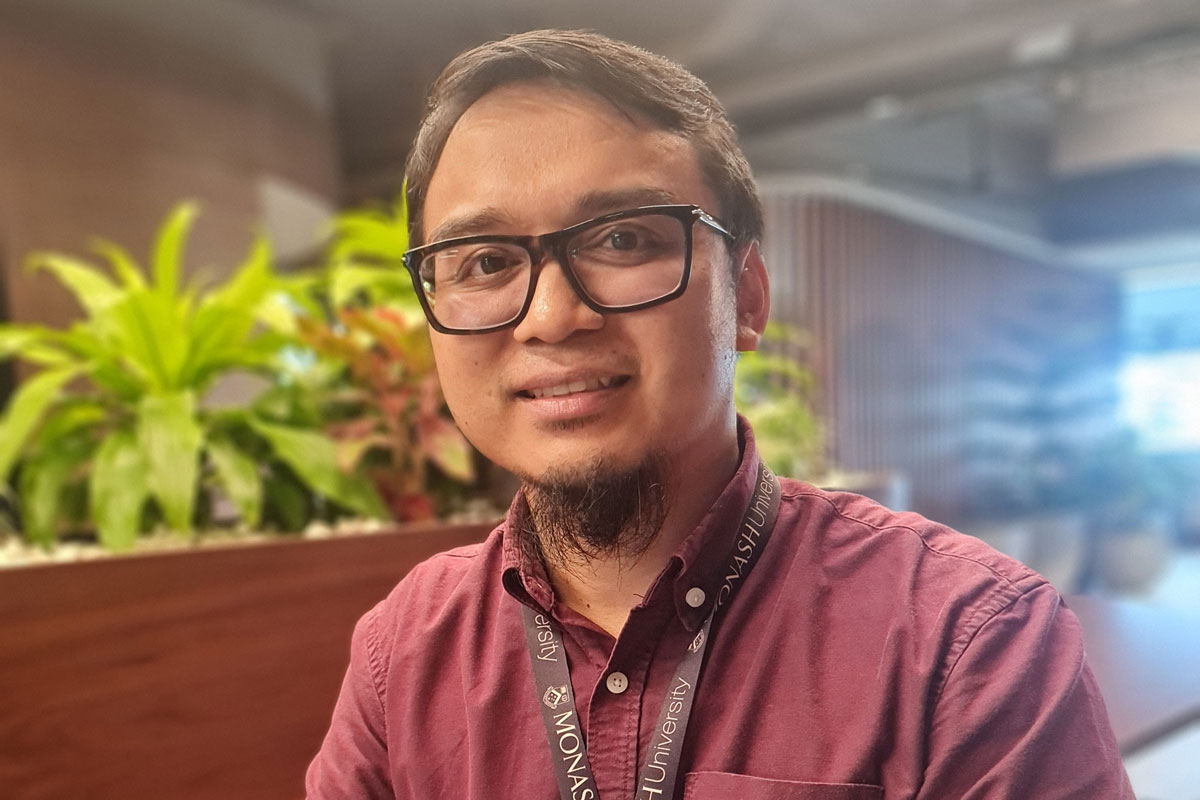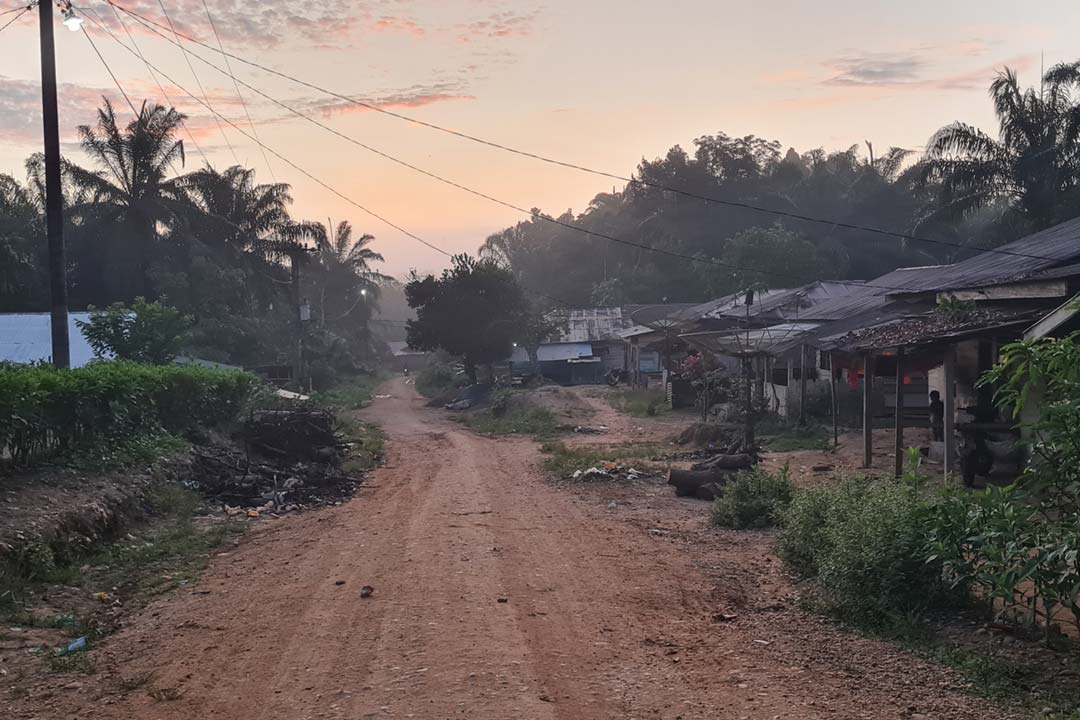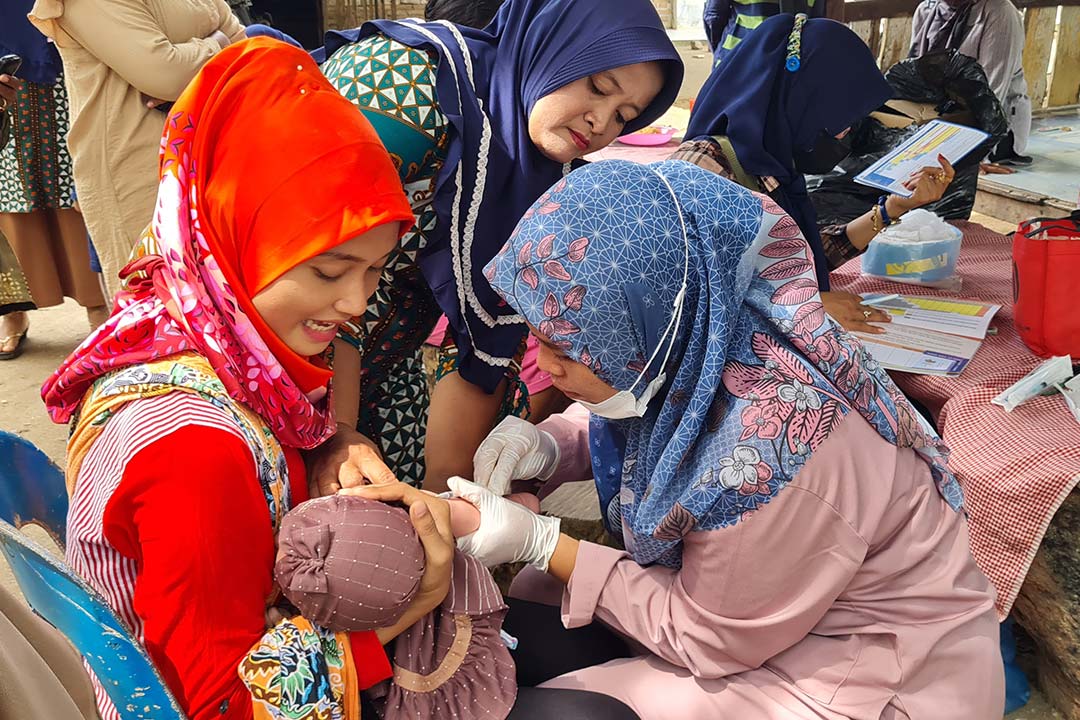The Indonesian doctor tackling tuberculosis via treatment, tweets and TikTok
Physician, researcher and social media star Erlina Burhan says helping the public understand TB is the necessary next step to the killer disease’s elimination.
- 9 July 2025
- 5 min read
- by Dyna Rochmyaningsih
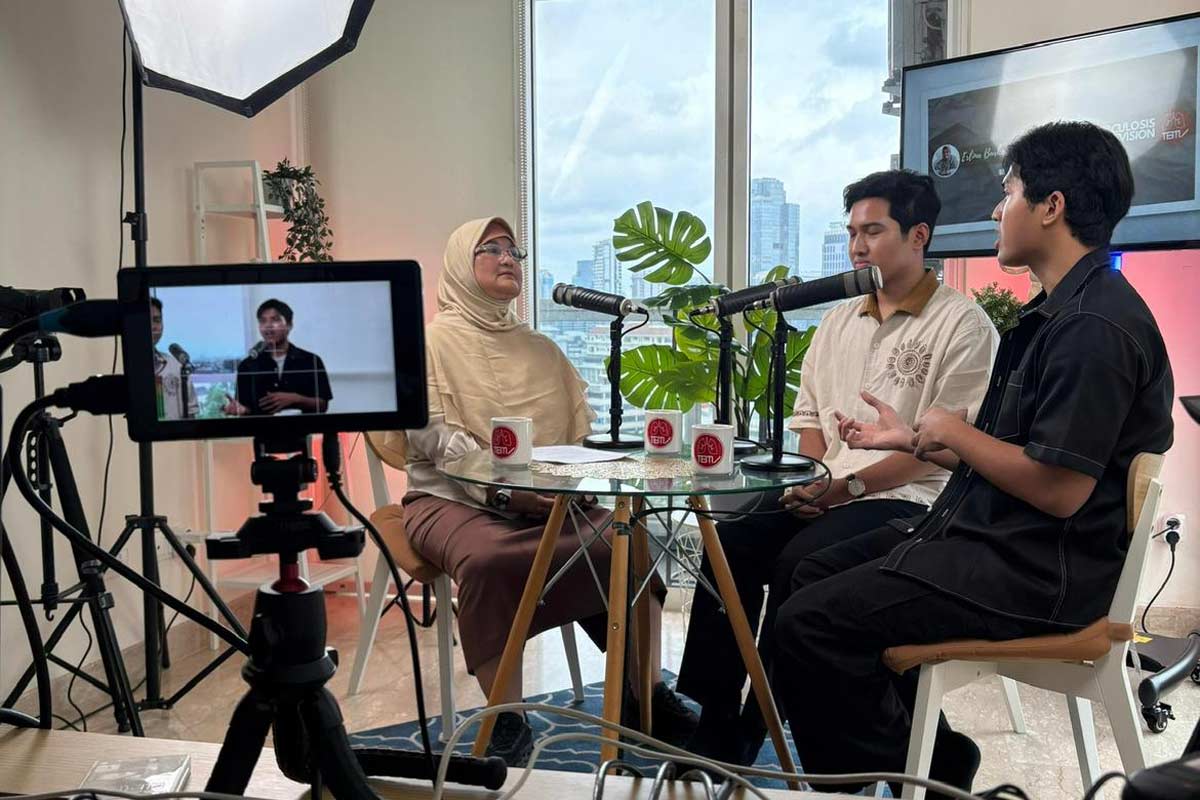
Erlina Burhan, a 62-year-old pulmonologist from Indonesia, knew from a young age that she would become a doctor. “I heard from people around me that being a doctor means helping people in need – and I wanted to do that,” she says.
Now a Professor of Pulmonology and Respiratory Medicine at the University of Indonesia, she has found more ways to help than she might have anticipated.
Since the COVID-19 pandemic, a period that underscored the vital importance of science communication globally, Burhan has made it her mission to communicate the science of respiratory illness to the public.
Critical COVID-19 cases have now subsided, but Burhan strives to contribute to the elimination of tuberculosis (TB) in Indonesia. “If we could do it with COVID-19, why not with TB?” she says. In 2020, SARS-CoV-2, the virus that causes COVID-19, had snatched the title of deadliest disease in the world from TB; in 2023, TB was back on top, with 1.25 million deaths and 8.2 million new diagnoses globally that year alone. Indonesia hasn’t been spared: more than 800,000 cases of the respiratory sickness were notified in the country in 2023.
Burhan is determined that this tide can be turned. Decades of clinical experience and public health activism – work that has won her awards as one of Indonesia’s most inspirational women – have taught her that, in public health, “educating people is the most important.”
Despite being a member of the Baby Boomer generation – not one famed for its technological fluency – Burhan has found online fame, flexibly adjusting her campaigning strategies to reach Millennial and Gen Z audiences. She has thousands of followers on X, Instagram, Facebook, YouTube and even TikTok, where she posts one-minute videos about anything related to TB. In person, or on any of the social platforms she inhabits, Burhan has one goal: routing a curable killer.
On a recent Thursday, VaccinesWork caught up with Burhan at her house in Rawamangun, Jakarta, just before she departed for work at the Rumah Sakit Persahabatan hospital in the city.
Meeting the enemy
Her first encounter with TB happened in early 1990s, when she worked as a young doctor in a small Puskesmas, a community health centre, in North Pariaman, West Sumatra. Coughing patients were visiting her office, some of them spluttered blood.
She suspected it was tuberculosis, but couldn’t give the medication due to the existing procedure. “Anti-tuberculosis medication could only be given to patients with positive result of [a certain] test,” says Burhan. She was referring to a traditional tuberculosis test that detects tuberculosis bacteria (Mycobacterium tuberculosis) via a reaction between patients’ mucus and liquid chemicals called a Ziehl-Neelsen stain.
“There were many unconfirmed results because the reagents we had were expired,” she says. Burhan says she regrets having had to operate inside what she now considers an excessively bureaucratic approach to accessing treatment, but at the time, as a young doctor, she couldn’t diverge from protocol.
After three years in North Pariaman, Burhan flew to Heidelberg, Germany, for her master’s degree in community health. But even in this chapter of her life, tuberculosis found her. She had visited Namibia as part of her field research. TB patients were in plentiful supply. “I realised that TB is a global problem with such a great magnitude,” she says.
The disease, she felt strongly, needed to be eliminated. In Namibia she determined her path: to dedicate her life to the fight against TB. In the early 2000s, she studied at the University of Indonesia for her PhD in pulmonology and respiratory diseases.
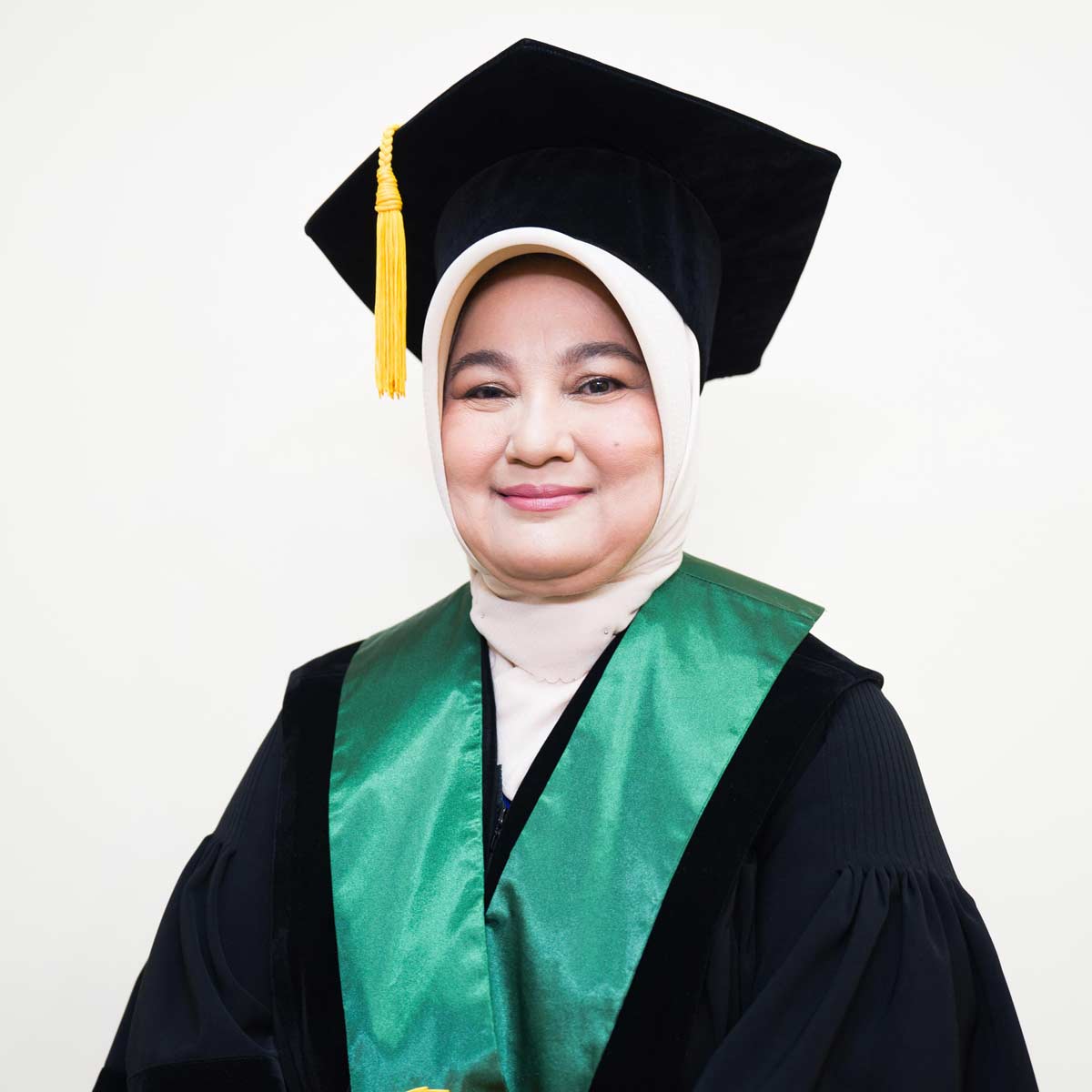
Administering both biomedical and social media cures
Two decades later, in her inaugural speech at the University of Indonesia, Burhan reminded her audience that TB is not a new disease like COVID-19: it has been known since Ancient Egypt, and humanity has built a trove of medical knowledge around its treatment and prevention.
Some of the tried-and-tested therapies are becoming less effective as the bacterium evolves resistance. But more drugs continue to make their way from research and development onto the market – Burhan herself has participated in some TB clinical trials. In 2023, together with colleagues in Singapore, Philippines, India, Uganda and Thailand, she published research showing that a bedaquiline-linezolid treatment was at least as effective as the standard rifampicin-based treatments that are at increasing risk from antimicrobial resistance.
Diagnostics, too, have made a leap into the future. Far from having to prove infection using expired chemicals, young doctors of today’s generation are able to diagnose TB with the help of artificial intelligence (AI).
“With such medical advancement, why can’t we eliminate the disease?” Burhan asks. 2023’s global TB rates were the highest since 1995. Indonesia is a major global contributor to those figures – and its mortality rate is also worrying. Around 140,000 people died of TB in 2022, which translates to a rate of 6 lives lost each hour.
Those statistics, Burhan cautions, are not just points on a graph: these numbers also mean “life tragedy”, suffering and broken dreams. Because of TB, “People lost their loved ones, employees lost their jobs and students quit their schools,” she adds.
Have you read?
She says a crucial blockade lies in the social, rather than biomedical, arena. Many people are embarrassed when they are diagnosed with TB, she says. In Indonesia, some even separate the plates, spoons and forks, of TB patients from the rest of the family. “Whose hearts would be unbroken with such discriminative treatment?” Burhan asks.
Social stigma and discrimination can act as a block against access to TB medication or completion of the treatment course. Starting on the curative drugs, but halting before the medicines have pushed the bacterium out of the body is a danger for more people than just the patient in question: “This what makes the drug-resistant bacteria,” says Burhan.
To overcome this problem of social stigma and discrimination, Burhan says she has to educate the public. “I consider [education] an important thing and that’s why I’m dedicating my time and money for that.” Propelled to social media stardom by a mix of professional video content and her own friendly and easy-to-digest explanations, Burhan has become a familiar face to the online Indonesian public.
The odd misinformed person or conspiracy theorist has sought to stand in her way when she has explained the importance of TB vaccines, but she is undeterred. “That’s why we need to educate them,” she says. “We need to end this tragedy.”
